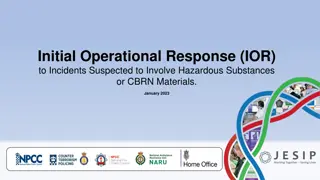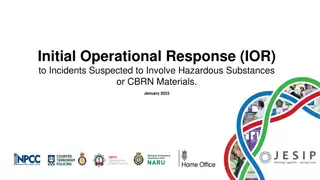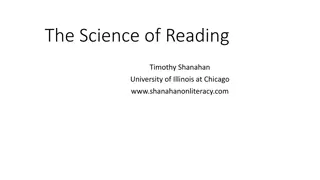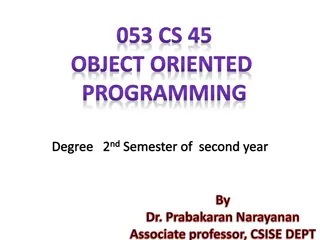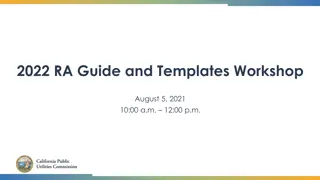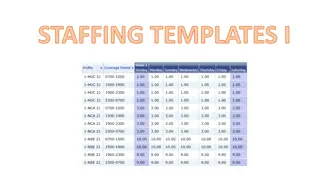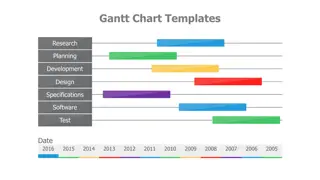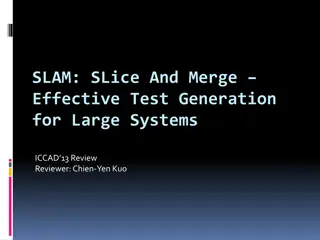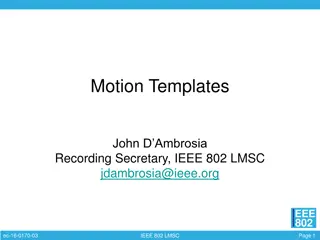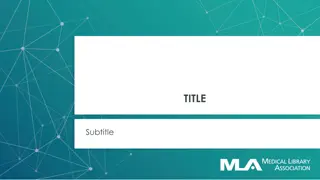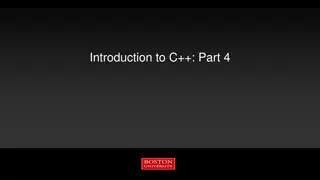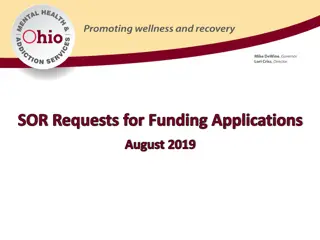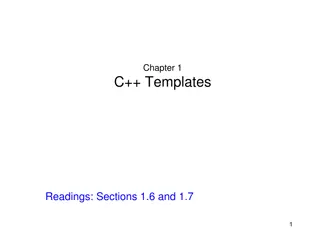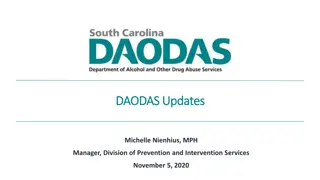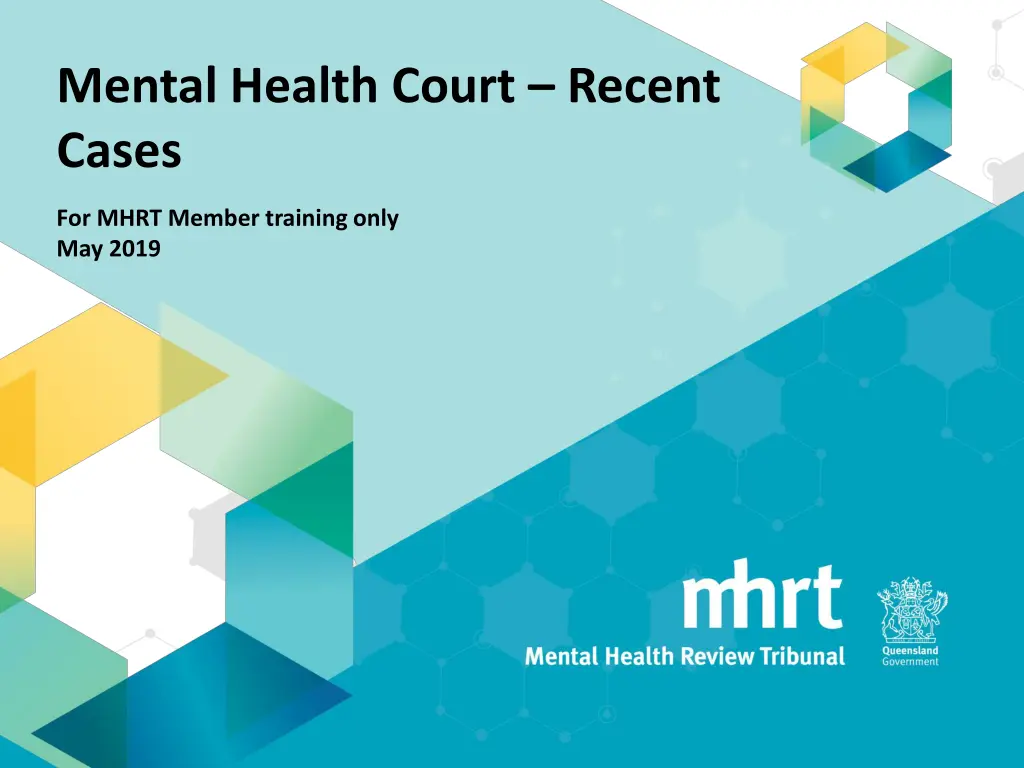
Recent Mental Health Court Cases and Decisions May 2019
Explore recent cases and decisions from the Mental Health Court, including discussions on forensic orders, treatment of persons with intellectual disabilities, and the jurisdiction of the MHRT. Understand the complexities surrounding custody issues and the power of the court in making key determinations.
Download Presentation

Please find below an Image/Link to download the presentation.
The content on the website is provided AS IS for your information and personal use only. It may not be sold, licensed, or shared on other websites without obtaining consent from the author. If you encounter any issues during the download, it is possible that the publisher has removed the file from their server.
You are allowed to download the files provided on this website for personal or commercial use, subject to the condition that they are used lawfully. All files are the property of their respective owners.
The content on the website is provided AS IS for your information and personal use only. It may not be sold, licensed, or shared on other websites without obtaining consent from the author.
E N D
Presentation Transcript
Mental Health Court Recent Cases For MHRT Member training only May 2019
Summary Recent cases from the Mental Health Court: In the matter of SAL category of authority/order for persons in custody (published on MHC site) Re GWD is the existence of a current existing mental illness a prerequisite to the confirmation of a forensic order (not published on MHC site online MHRT internal) In the matter of BAC treatment of persons with an intellectual disability (published on MHC site) Introduction of new SOR templates
Mental Health Court Cases MHRT is not a court of record. MHRT decisions are not binding on future MHRT panels. S705(2): In exercising its jurisdiction, MHRT must act independently and is not subject to direction or control by any entity, including any Minister. Arguably, MHC decisions are not binding on the MHRT. BUT MHC is appeal body for MHRT decisions. Not good decision-making to make decisions that you know are going to be overturned on appeal.
Persons in custody Dealt with by the MHC in a number of cases. Cases have approached the issue in various ways. In the matter of Colin Jeffrey Florey published Appeal to MHC004 unpublished Reference unpublished In the matter of SAL - published Difficult to identify a clear position for the Tribunal on how to determine category. The published decisions and appeal (deidentified) on website. Must be kept confidential. We have permission from MHC to publish deidentified appeal decisions on website for members only.
Florey Question was whether MHC had the power to make a forensic order granting LCT for a person in custody. Decision under the 2000 Act only one category, full LCT was effectively community. Justice Dalton: MHC has the power to make an FO with provision for LCT which would see Mr Florey living in prison. If LCT not granted, the 2000 Act required Mr Florey to be taken from jail to The Park.
Florey Considerations: Under 2000 Act (no s199). Did not consider the obligation on the Tribunal to consider unacceptablerisk when deciding category. MHC was satisfied that Mr Florey could reside in community once released from prison.
Appeal to MHC004 Unpublished. Identified on MHRT Members Website as MHC004. Tribunal had confirmed the FO and stated that until such time as the patient was released from the correctional facility, the category was community, and upon release, the category would be inpatient. Appeal related to the category of the FO.
Appeal to MHC004 Set aside the Tribunal s decision and substituted the decision to confirm the FO, category inpatient. Justice Flanagan: The evidence before the Tribunal was that the Tribunal could not be satisfied that there was not an unacceptable risk to the safety of the community because of the patient s medical condition. Therefore, could not meet test in s444 to make category community. Tribunal sought to have an FO that changed category depending on whether the person was incarcerated. No legislative power to make that order. In the transcript, the definition of inpatient in the MHA2016 is considered and does not change Justice Flanagan s decision.
Reference - unpublished Cannot publish a deidentified version of this decision not an appeal. Subject person was incarcerated when he committed a further offence (GBH). Medical evidence before MHC in deciding the reference re GBH offence recommended that the person be transferred to an AMHS on release from jail. Justice Dalton was satisfied to make FO, category inpatient.
Reference - unpublished MHC ordered: The Court makes a forensic order. When he is released from jail, the [named] Authorised Mental Health Service is responsible for him while he is subject to the forensic order. The category of the forensic order is inpatient.
In the matter of SAL Background: SAL was incarcerated for charges unrelated to those for which he was subject to FO. Tribunal confirmed FO, category inpatient, no LCT. SAL appealed the decision. Justice Dalton: not possible to have a person reside in a correctional facility as inpatient . MHA2016 should be interpreted same way as 2000 Act. relied on definition of inpatient must be detained in an inpatient facility. In respect of s199, Justice Dalton: noted s199(2) and (3) tend to show the same result in Florey should apply under MHA2016. Although, I must acknowledge that the Explanatory Notes to s199 do not give any particular indication that is so.
In the matter of SAL When person to be released from jail: Her Honour noted that it is appropriate that the question of whether FO should remain community category should be revisited. different community between in jail and out of jail. terms of FO must include the requirement that the authorised psychiatrist consider whether to change the category.
In the matter of SAL Order: When [person] is lawfully released from prison, the authorised doctor must consider whether or not the category of the forensic order ought to be changed to inpatient, and whether there ought to be other conditions of the FO. Conditions: He must reside at [named] correctional centre, or such correctional centre as determined by Corrective Services Queensland, until lawfully released from prison. When he is lawfully released from prison, he must reside at a place approved in advance in writing by the authorised psychiatrist. When he is released from prison, he must attend an initial appointment at an authorised mental health service, at a time, date and location to be advised by the authorised psychiatrist and must attend all subsequent appointments as the authorised doctor requires.
In the matter of SAL Consideration operation of s199: Definition of inpatient does require detainment in AMHS (not prison). However, s199(2) seems to suggest that when determining inpatient or community, custodial status is ignored. Seems that s199(2) is an exception to the definition of inpatient. Support for this from Explanatory Notes: Clause 199 clarifies the relationship between powers that may be exercised under this Bill and the custodial status of a person. This applies, for example, where a person on a treatment authority may be serving a period of imprisonment. In these cases, decisions about the person's authority or order are not to take into account the person s custodial status. However, the custodial status of the patient takes precedence. This means, for example, a person on a treatment authority on an inpatient category may be lawfully held in custody, as the custodial status takes precedence. These provisions are subject to the classified patient provisions in chapter 3.
In the matter of SAL Other considerations: Unacceptable risk S444 mandates Tribunal may only make category of FO community if satisfied there is not an unacceptable risk. If Tribunal considers there is an unacceptable risk, Tribunal would not be compliant with s444 if they made the order community. Justice Flanagan noted that in Appeal to the MHC 004 if the evidence before the Tribunal is that there is an unacceptable risk to the safety of the community, the Tribunal should not elect to make the person community category simply because the person resides in prison. Release at any time Possible that Tribunal may determine risk may be mitigated while person is residing in controlled environment of prison. The person s custodial status is outside Tribunal s control. Person may be released at any point without prior notice to Tribunal. Then risk no longer mitigated.
In the matter of SAL Other considerations: Assessment on release: MHC ordered person be assessed upon release and authorised psychiatrist determine if order should be inpatient or community. Decision as to category being made by authorised psychiatrist and not Tribunal. Practical challenges: If corrections facility is required to release the person at a particular day/time, they will be unlikely to hold the person until such time as an authorised psychiatrist is able to attend the prison for an assessment. It is the Tribunal s understanding that in prison, treatment is not provided unless they accept it voluntarily. Psychiatrist may not be in a position to undertake an appropriate assessment. If treating AMHS is not proximate to prison, may be difficult to have responsible authorised psychiatrist undertake the assessment. If the order requires the patient to attend AMHS to undergo assessment, there is a chance the patient would not do so straight away, if at all. During the time post-release, patient would be in the community and potentially representing an unacceptable risk.
Tribunals decision Ultimately, category is a matter for Tribunal at each review. Important to understand MHC s view. When determining category recommend that Tribunal assess the relevant test regarding risk. Risk factors may be sufficiently mitigated while in prison. Additional factors to consider may be whether the person is on remand or serving sentence, likelihood of bail or parole, length of sentence. Consider whether it is likely that person will be released during the next review period.
Tribunals decision If satisfied there is an unacceptable risk according to relevant legislative test, Tribunal may need to make category inpatient. It is then a matter for relevant AMHS to determine whether they will require the person to be transferred from prison to the AMHS. In your order and conditions: Recommend you avoid a conditional order that is, the category changes depending on where the patient resides. Recommend you consider the requirements of the relevant section and determine the category and note what is required regarding whether an authorised doctor can change the extent of treatment in the community. Recommend you not include reference to what the doctor has the authority to do under section 212 this is already set out in the MHA2016.
Questions Any questions about persons in custody?
Re GWD [Not published] GWD on an FO unsound mind regarding a charge of murder. Tribunal revoked FO: Revoked the FO on the basis that the person had no mentalcondition . Appeal by AG: Argued: Tribunal erred in law when it concluded that s422(1) required the person to have a current existing mentalcondition before the Tribunal could confirm the order. MHC s decision: Tribunal s decision set aside and a TSO was made.
Tribunals decision Evidence before the Tribunal: Person does not have a diagnosable mental illness or intellectual disability. Person does not have a mental illness in remission (meaning a disease in partial or full abeyance, but with reasonable chance of return). Independent expert confirmed that a predisposition to depression in the future did not mean that the person had a present mental condition. Not taking any medication and did not require any. Referred to section 422(1) which requires the Tribunal to confirm the FO if the Tribunal considers the order is necessary because of the person s mental condition, to protect the safety of the community. Tribunal makes decision regarding whether elements of test met at the time of conducting the review.
Tribunals decision Relied on the decision of the MHC in Re AKB The whole point of the s 203 discretion is to recognise that the mental condition underlying a forensic order is not necessarily immutable. It does not amount to an attack on the original finding to consider whether the condition continues to exist In my view, the proper construction of s 203 is that the decision to confirm or revoke must be based on the factors set out in s 203(6), as applied to the current set of circumstances.
A-Gs argument The forensic order regime is first and foremost a risk protection mechanism to protect the community from harm by persons that have been diverted from the criminal justice system. If Tribunal s reasoning is accepted, then patients afforded a defence of unsoundness of mind due to a transient or episodic mental illness, despite a risk of recurrence, cannot be supervised under the FO or TSO regime because they do not have a current mental illness. Treating the existence of a mental condition at the time of review as a jurisdictional fact resulted in Tribunal not undertaking necessary risk assessment mandated by MHA2016 prior to revoking FO.
Chief Psychiatrists view S422(1) does not expressly require that the person have an existing mental illness as a precondition to the confirmation of an FO. Contrasted with regime in MHA2016 for making and review of TAs.
MHC Decision Meaning of mentalcondition : includes mentalillness and intellectualdisability both of which are defined in the Act as the term is a composite phase already defined by the Act, it is wrong to further refine the construction of mental condition by emphasising the apparent plain meaning of condition it is simply a shorthand way of referring to both mental illness and intellectual disability. The Tribunal must take circumstances. The circumstances and treatment , support the proposition that in conducting a review, the Tribunal must have regard not only to the person s existing mental state but the person s psychiatric history and history of response to treatment. into account of relevant relevant definitions
MHC Decision MHC distinguished the case of Re AKB. Re AKB was made under the 2000 Act. 2000 Act did not specifically identify the protection of the community if persons diverted from the criminal justice system may be at risk of harming others as 2016 Act does. Under the 2000 Act, the Tribunal reviewed the forensic patient s mental condition. Under the 2016 Act, the Tribunal reviews the FO originally made by the MHC.
MHC Decision A person s existing mental condition is relevant in any review. But there is nothing in the wording of s442(1) which makes the current existence of a mental condition a prerequisite to the Tribunal exercising its power to confirm an FO. Before confirming an FO, it remains for the Tribunal to satisfy itself that the FO is necessary to protect the safety of the community and that necessity is because of the person s mental condition.
Considerations re medical evidence The Tribunal had a report from an independent expert who said : the person does not have a diagnosable mental illness or intellectual disability. the person does not have a mental illness in remission (meaning a disease in partial or full abeyance, but with reasonable chance of return). a predisposition to depression in the future did not mean that the person had a present mental condition. MHC relied on evidence that said: Evidence before MHC at time of reference was that GWD had been suffering from a severe depressive illness which had remained unrecognised for at least 23 months. Little is known of the progress of relapse in major depressive disorder when it develops in a young person. A single episode may be a prequel to a person who has a chronic battle with major depressive disorder or relapsing depressive disorder throughout their life. CFOS: GWD is forever predisposed to recurrence of depression, but that with the passage of several years the likelihood of recurrence is relatively low.
Questions Any questions about the consideration of an existing mental illness?
In the matter of BAC Appeal of a Tribunal decision to confirm FO (mental health). Patient appealed, by the Public Guardian: said the FO (mental health) should be a FO (disability) but acknowledged that the MHC may not have the power to make the change. asked the MHC to make changes to the conditions of the FO so that it only allowed involuntary care and not involuntary treatment. BAC was prescribed Androcur (reduces testosterone production) and other drugs which can have sedating effects (Sodium Valproate, Citalopram, Chlorpromazine). While it was accepted by all that BAC has an intellectual disability, there was some conjecture about whether BAC had a mental illness.
In the matter of BAC While the Tribunal accepted the treating psychiatrist s view that BAC had both an intellectual disability and a mental illness, the MHC found that he only had an intellectual disability. The treating psychiatrist opined that BAC s sexual behaviour was a result of a disorder of sexual preference a paraphilia. The MHC accepted the Assisting Psychiatrist s evidence that such behaviours arose from his moderate intellectual disability. MHC then noted that given BAC only had an intellectual disability and no mental illness, he could not have a dual disability. Therefore, s457 could not apply, and the MHC could not make a FO (disability) for BAC.
In the matter of BAC Patient s lawyer argued that the MHA2016 allows treatment to only be provided to people with mental illness; whereas care is to be provided to people with intellectual disabilities. MHC considered the history of legislative change to the mental health legislation following introduction of the Forensic Disability Act 2011 and the language used in the MHA2016. Justice Flanagan concluded that the scheme of the MHA2016 is that persons on a FO and suffer from only intellectual disability will not receive treatment.
In the matter of BAC MHC found that the FO should not contain the following condition: That the patient comply with all appointments for follow up and prescribed treatment, including the taking of prescribed medication and undergo random tests for those medications, as required by the treatment psychiatrist. Should be replaced with: That the patient comply with all appointments for follow up and the authorised doctor s lawful directions regarding involuntary care.
In the matter of BAC In respect of prescription of medication: MHC held that the authorised doctor did not have authority to prescribe medication for BAC under the FO. However, it was not the MHC s intention that no chemical restraints would be prescribed. MHC recommended discussions between the treating team and the Public Guardian to identify which, if any, medications should be prescribed for BAC. The provision of medication would be with the Public Guardian s consent (as substitute decision maker for BAC), rather than under the FO.
Questions Any questions about the prescribing of treatment for a person with an intellectual disability?
Statement of Reasons Templates We will be provided new recommended templates for use when preparing SORs. Aim: Streamline the document less repetition of information. Focus on the decision-making process rather than simply repeating what happened at the hearing. Make is easier for the reader to identify and understand the Tribunal s reasoning. We trialled the new style of template with some members and sought their feedback. Mostly positive feedback and in light of that feedback we made some modifications.
Statement of Reasons Templates Main changes: No need to include an outline of the oral evidence. Include reference to what was said at the hearing when detailing the factors considered by the Tribunal under the relevant criteria. Like current versions, headings have been used to align the SOR to the criteria for each hearing type. You will find the new templates on the MHRT website. We recommend that you use these new templates when you are asked to prepare an SOR. Any questions, please contact the team.

